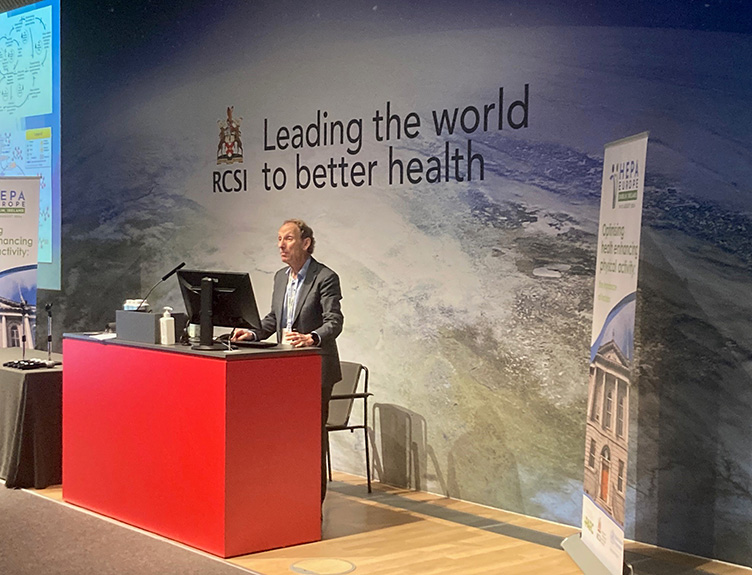HEPA Europe 2024 Conference at RCSI focuses on inclusive health-enhancing physical activity

The HEPA Europe (the European Network for the Promotion of Health-Enhancing Physical Activity) 2024 Conference, a major international event jointly organised by RCSI University of Medicine and Health Sciences and the World Health Organization (WHO) Europe, has opened today in RCSI. The conference is focused on the theme “Optimising Health-Enhancing Physical Activity: The Importance of Inclusion” and brings together over 420 experts, researchers, and policymakers from 36 countries.
With 184 abstracts from leading researchers in the field of physical activity and an additional 55 covering policy and practice, the conference is bridging the gap between research, policy, and practice in health-enhancing physical activity. This synergy is needed to drive transformative change in health policies and practices, thereby improving the health outcomes of people in Ireland and across Europe.
Professor Suzanne McDonough, Professor of Health and Rehabilitation and Head of the School of Physiotherapy at RCSI, highlighted the significance of this year’s theme. “Our goal at this conference is to explore innovative ways to engage underrepresented groups, including people with disabilities, in health-enhancing physical activity. With representatives from policy and practice at the same table we can create a more inclusive environment that promotes physical activity for all.”
The importance of this collaborative effort was echoed by Dr Anna Chalkley, Chair of HEPA Europe. “The HEPA Europe 2024 conference represents a crucial platform for advancing our shared vision of an active and healthy Europe. By focusing on inclusion, we are not only addressing the disparities in physical activity participation but also promoting health equity.”
RCSI’s contribution to the conference is substantial, with 13 abstracts from the Schools of Physiotherapy, Nursing and Midwifery, Population Health, and Medicine. The research presented covers a broad spectrum of topics, including health-enhancing physical activity in chronic disease, pregnancy, sporting populations, and university students. Additionally, innovative approaches such as digital and nature-based physical activities are being explored to enhance participation among diverse groups.
The regional Advisor for Nutrition, Physical Activity and Obesity from the WHO Regional Office for Europe, Dr Kremlin Wickramasinghe, underscored the significance of the conference. “WHO Europe is committed to working with partners like RCSI and HEPA Europe to ensure that health-enhancing physical activity is accessible to everyone, regardless of their background or circumstances. This conference is a testament to our collective dedication to improving public health through inclusive and evidence-based strategies”.
The conference has been jointly organised by RCSI’s Schools of Physiotherapy and Population Health. These schools collaborate closely in research and education, offering programmes that equip healthcare clinicians with the skills needed to conduct physical activity consultations across clinical populations.
For more information on HEPA Europe 2024, please visit www.hepa2024.ie.



